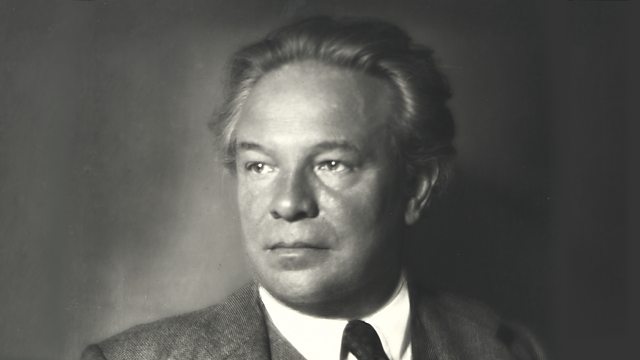
Maestro
Donald Macleod sees Respighi enjoying success at home and abroad during the 1920s, including music based on Botticelli's famous painting, The Birth of Venus.
Ottorino Respighi (1879-1936) remains one of the most popular - and controversial - Italian composers of the 20th century: a man caught in time between the high Romantic drama of his predecessors Verdi and Puccini, and the Futurism and avant-garde musical experiments of his later compatriots Dallapiccola, Berio and Scelsi.
Respighi chose a different route - his work often infused with the music of a halcyon past. Many of Respighi's work look back to the Italian Baroque - some even to Gregorian chant. Yet they remain charmingly, distinctively blended with his own 20th-century musical language. This week Donald Macleod - like Respighi - takes a path less trodden as he presents a series of lesser-known masterpieces from the pen of this Italian master.
Today, Donald Macleod sees Respighi enjoying success at home and abroad during the 1920s, including music based on Botticelli's famous painting 'The Birth of Venus'. However, disputes wtih the managers of the La Scala theatre in Milan threaten to scupper his latest opera project.
Dance Of The Gnomes
Philharmonia Orchestra
Geoffrey Simon, conductor
Adagio Con Variazioni, for cello and orchestra
Mischa Maisky, cello
Orchestre De Paris
Semyon Bychkov, conductor
Belfagor (excerpt from Act I)
Lajos Miller (Ipsilonne), baritone
Sylvia Sass (Candida), soprano
Magda Kalmár (Fidelia) ,soprano
Mária Zempléni (Maddalena), soprano)
László Polgár (Mirocleto), bass
Hungarian Radio and Television Chorus
Hungarian State Orchestra
Lamberto Gardelli, conductor
Trittico Botticelliano: I. Spring, III. The Birth Of Venus
Orpheus Chamber Orchestra.
Last on
Music Played
-
![]()
Ottorino Respighi
Adagio con Variazioni, arr. for cello and orchestra
Performer: Mischa Maisky. Orchestra: Orchestre de Paris – Philharmonie. Conductor: Semyon Bychkov.- DEUTSCHE GRAMMOP : 435 781-2-.
- DEUTSCHE GRAMMOP.
- 3.
-
![]()
Ottorino Respighi
Uh! Poveretta me!; Candida! (Belfagor, Act I)
Singer: Sylvia Sass. Singer: Giorgio Lamberti. Choir: Hungarian Radio and Television Chorus. Orchestra: Hungarian National Philharmonic Orchestra. Conductor: Lamberto Gardelli.- HUNGAROTON : HCD-12850/51.
- HUNGAROTON.
- 12.
-
![]()
Ottorino Respighi
I. Spring; III. The Birth of Venus (Trittico Botticelliano)
Orchestra: Orpheus Chamber Orchestra.- DEUTSCHE GRAMMOPHON : 437-533-2.
- DEUTSCHE GRAMMOPHON.
- 14.
Broadcast
- Thu 9 Aug 2018 13:00����ý Radio 3
Beethoven Unleashed – the box set
What was really wrong with Beethoven?
Composers A to Z
Who knew? Five eye-opening stories from Composer of the Week
Five reasons why we love Parry's Jerusalem
What is the strange power of Jerusalem which makes strong men weep?
A man out of time – why Parry's music and ideas were at odds with his image...
The composer of Jerusalem was very far from the conservative figure his image suggests.
Composer Help Page
Find resources and contacts for composers from within the classical music industry.





